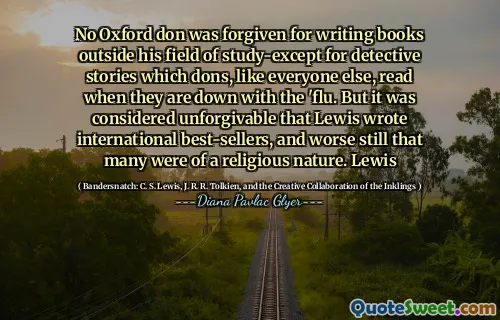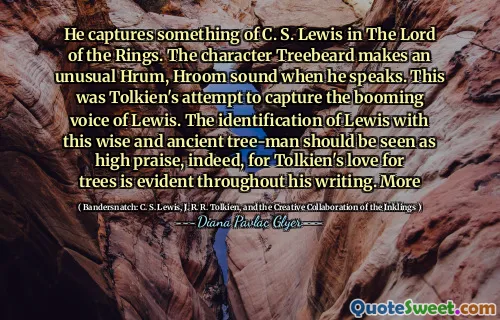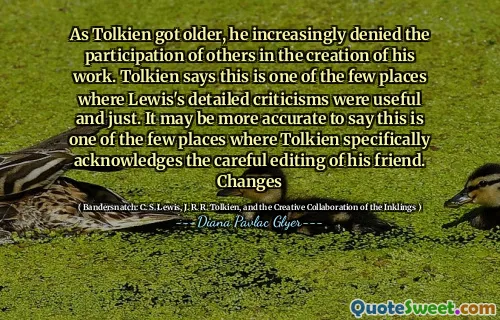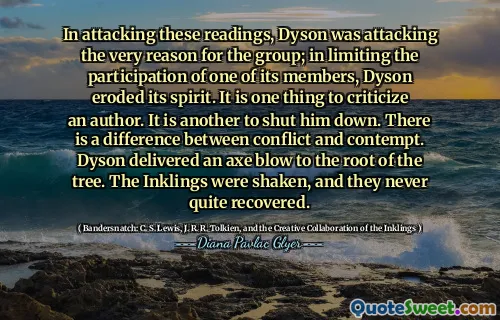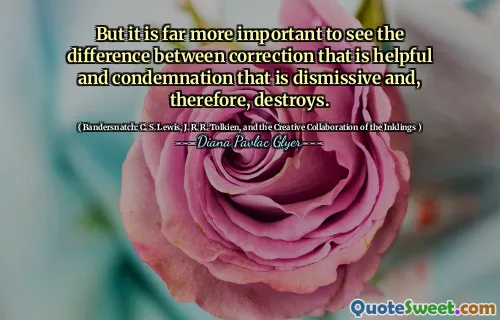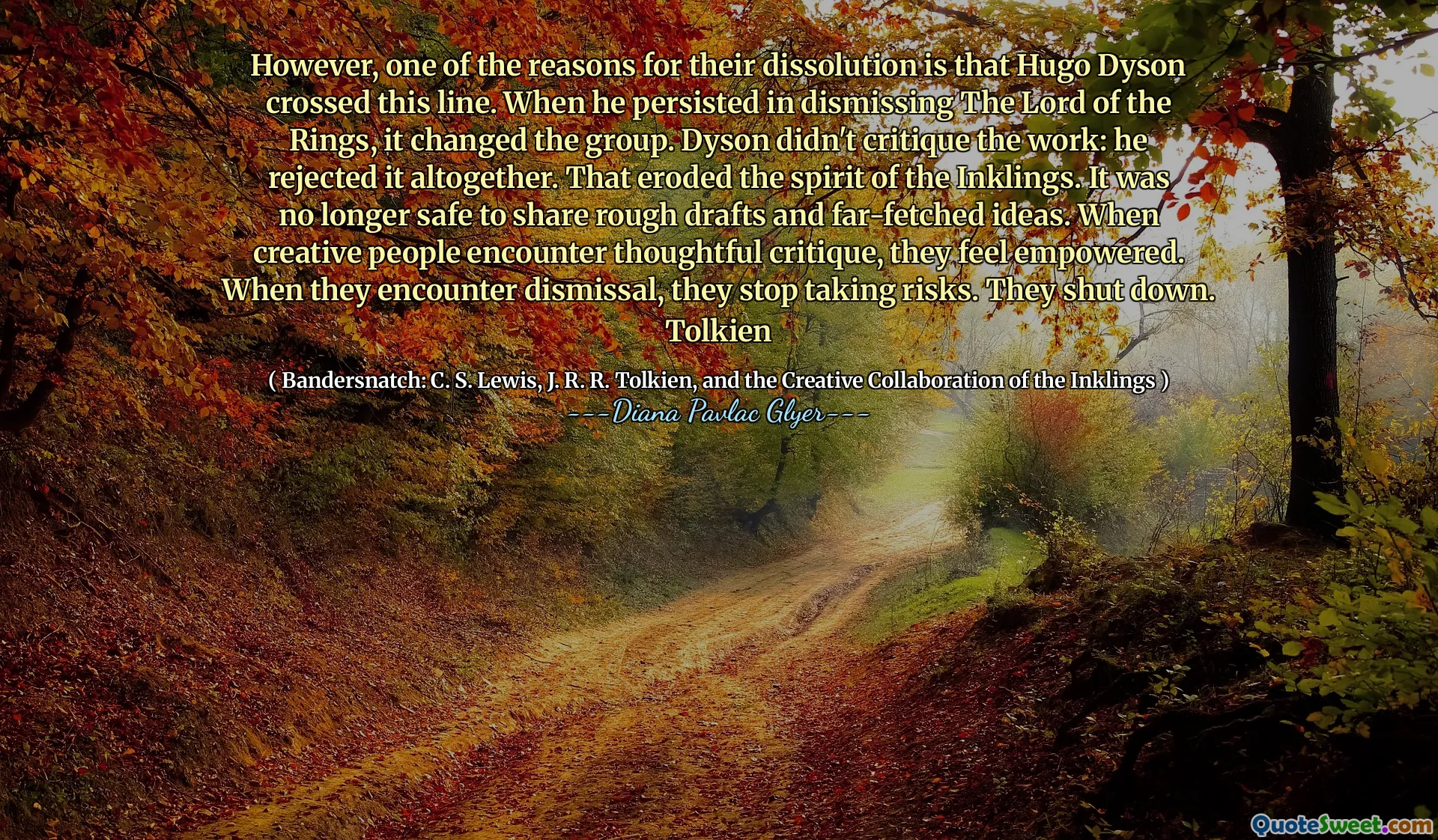
However, one of the reasons for their dissolution is that Hugo Dyson crossed this line. When he persisted in dismissing The Lord of the Rings, it changed the group. Dyson didn't critique the work: he rejected it altogether. That eroded the spirit of the Inklings. It was no longer safe to share rough drafts and far-fetched ideas. When creative people encounter thoughtful critique, they feel empowered. When they encounter dismissal, they stop taking risks. They shut down. Tolkien
The Inklings, a renowned literary group including figures like J.R.R. Tolkien and C.S. Lewis, faced dissolution in part due to Hugo Dyson's outright rejection of Tolkien's work, particularly The Lord of the Rings. This dismissal altered the group's dynamics, creating an environment where sharing experimental ideas became fraught with tension. Instead of fostering creative exploration, Dyson's critique instilled fear, making members less willing to share their drafts.
The spirit of collaboration and support diminished as the Inklings experienced this shift from constructive criticism to outright rejection. Thoughtful critiques typically empower artists, encouraging risk-taking and innovation, while dismissal leads to a retraction of creativity. In this damaging atmosphere, the group lost its ability to nurture the bold ideas that had initially united them.

